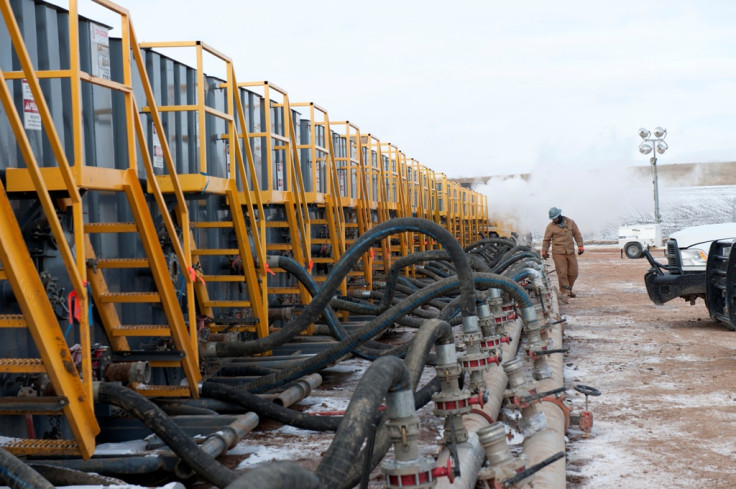Drink up: US environmental agency says fracking has no widespread impact on water quality

Hydraulic fracking has no "widespread, systemic impacts" on drinking water, the US Environmental Protection Agency has declared in a new study.
The draft report did warn, however, that fracking increases the "potential for impacts," and instances exist where drinking water has been impacted, but they represent a small segment of the overall situation.
"Hydraulic fracturing activities in the US are carried out in a way that have not led to widespread, systematic impact on drinking water resources," said Thomas Burke, deputy assistant administrator of the EPA's office of research and development. "In fact, the number of documented impacts to drinking water is relatively low when compared to the number of fractured wells."
Fracking involves injecting chemicals and liquids at high pressure below the earth's surface to open up rocks and crevasses to extract natural gas or oil. Critics have long charged that the procedure contaminates water and further pollutes other aspects environment.
Mixed views of the study
Burke said local authorities can use the new study as they regulate fracking in their areas. He said the report was the most thorough review of data on the issue and includes information gleaned from over 950 sources of information, including published papers, technical reports, and peer-reviewed EPA scientific reports.
But environmental activist groups were sharply critical of the EPA's conclusion, or focused on the finding that some instances of pollution do occur. To be truly valid, argued Inside Climate News, a study would have to examine a timeline of water quality before fracking occurs and for up to two years afterwards, rather than focus solely on problems that may be so severe as to demand investigation before they're noticed.
"This was supposed to be the gold standard. But they went through a long bureaucratic process of trying to develop a study that is not going to produce a meaningful result," geochemist Geoffrey Thyne, a member of the EPA's 2011 Science Advisory Board, told Inside Climate News.
Even without the drinking water component, fracking remains controversial in many communities. Many critics focus more on other concerns, including air emissions related to climate change, community health impacts and a surge in earthquakes in atypical regions of the US that studies have linked to injecting fracking wastewater.
© Copyright IBTimes 2025. All rights reserved.






















